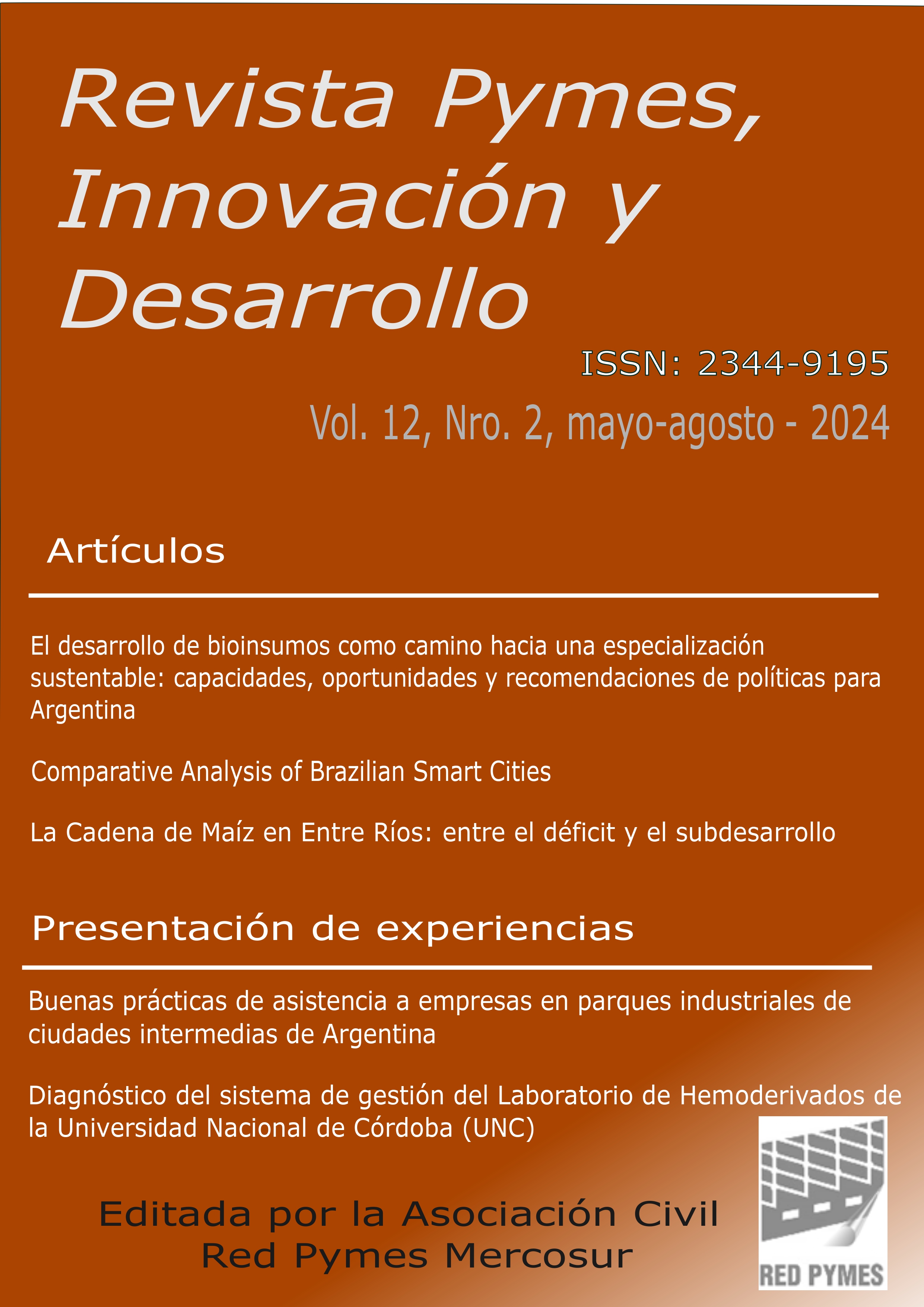Diagnostic work on the management information system in Laboratorio de Hemoderivados, Universidad Nacional de Córdoba (UNC)
DOI:
https://doi.org/10.70453/2344.9195.v12.n2.46465Keywords:
Technological Change Management, Information Systems, Management SystemAbstract
This paper aims to describe the experience of the diagnostic work on the information systems of the Blood Derivatives Laboratory (LH) of the National University of Córdoba (UNC), carried out by the ConCiencia Digital Transfer Center (FCE-UNC). The general objective of the technical consultancy carried out was to elaborate a diagnosis and evaluation about the possibilities, implications and convenience of adjusting the management system (GS) in operation to the current needs of the LH or, failing that, to consider its replacement by a new system. This is an experience of linkage and knowledge transfer between two entities of the UNC, which involved significant organizational learning about technological and processes innovation.
Downloads
References
Aguiar, M. G., León, A. M., Rivera, D. N., & González, R. H. S. (2019). Proceso de consultoría organizacional: modelo conceptual. Revista Venezolana de Gerencia, 24(88), 1272-1289.
Beltrán, N., Oviedo, S., Oliva, C. D., Gomez-Auad, M. A., Benegas-Prado Loyo, J. M., Mendoza, M., & Morales, P. A. (2023). Understanding the Evolution of Organizations Towards a Sustainable Business Model Within the Framework of the SDGs: The Case of Laboratorio de Hemoderivados-UNC. In Responsible Consumption and Sustainability: Case Studies from Corporate Social Responsibility, Social Marketing, and Behavioral Economics (pp. 269-291). Cham: Springer International Publishing.
Díaz de Guijarro, E. (2019). Laboratorio de hemoderivados de Córdoba: modelo de producción pública de medicamentos. Ciencia, tecnología y política, 2(3). ISSN: 2618-2483. Universidad Nacional de La Plata, Argentina.
Fasio, A. N. & Rutty, M. G. (2017). Hacia la identificación de dimensiones relevantes relacionadas con el aprendizaje organizacional. Trilogía Ciencia Tecnología Sociedad, 9(16), 85- 99.
Franch León, K., & Guerra Bretaña, C. (2016). Las normas ISO 9000: una mirada desde la gestión del conocimiento, la información, innovación y el aprendizaje organizacional. Cofin Habana, 10(2), 29-54.
Laudon, K. C., Laudon, J. P., & Ramos, A. N. (2016). Sistemas de información gerencial. Naucalpan de Juárez: Pearson Educación.
Ley Nacional de Sangre Nro 22.990
Mendoza, D., Rojano Alvarado, Y., & Salas Solano, E. (2016). El Pensamiento Estratégico Como Herramienta De Innovación Tecnológica En Las Pymes (Strategic Thinking as a Tool for Technological Innovation in SMEs). SOTAVENTO MBA, (27).
Riascos-Erazo, S. C. & Arias-Cardona, V. H. (2016). Análisis del impacto organizacional en el proceso de implementación de los Sistemas de Información ERP – Caso de Estudio. Entramado, 12(1), 284-302. http://dx.doi.org/10.18041/entramado.2016v12n1.23127
Vargas Encalada, E. E.; Rengifo Lozano, R. A.; Guizado Oscco, F. & Sánchez Aguirre, F. (2019). Sistemas de información como herramienta para reorganizar procesos de manufactura. Revista Venezolana de Gerencia, 24(85).
Downloads
Published
Issue
Section
License

This work is licensed under a Creative Commons Attribution 4.0 International License.
Authors who publish with this journal agree to the following terms:Authors retain copyright and grant the journal right of first publication with the work simultaneously licensed under a Creative Commons Attribution License that allows others to share the work with an acknowledgement of the work's authorship and initial publication in this journal.
Authors are able to enter into separate, additional contractual arrangements for the non-exclusive distribution of the journal's published version of the work (e.g., post it to an institutional repository or publish it in a book), with an acknowledgement of its initial publication in this journal.
Authors are permitted and encouraged to post their work online (e.g., in institutional repositories or on their website) prior to and during the submission process, as it can lead to productive exchanges, as well as earlier and greater citation of published work (See The Effect of Open Access).














